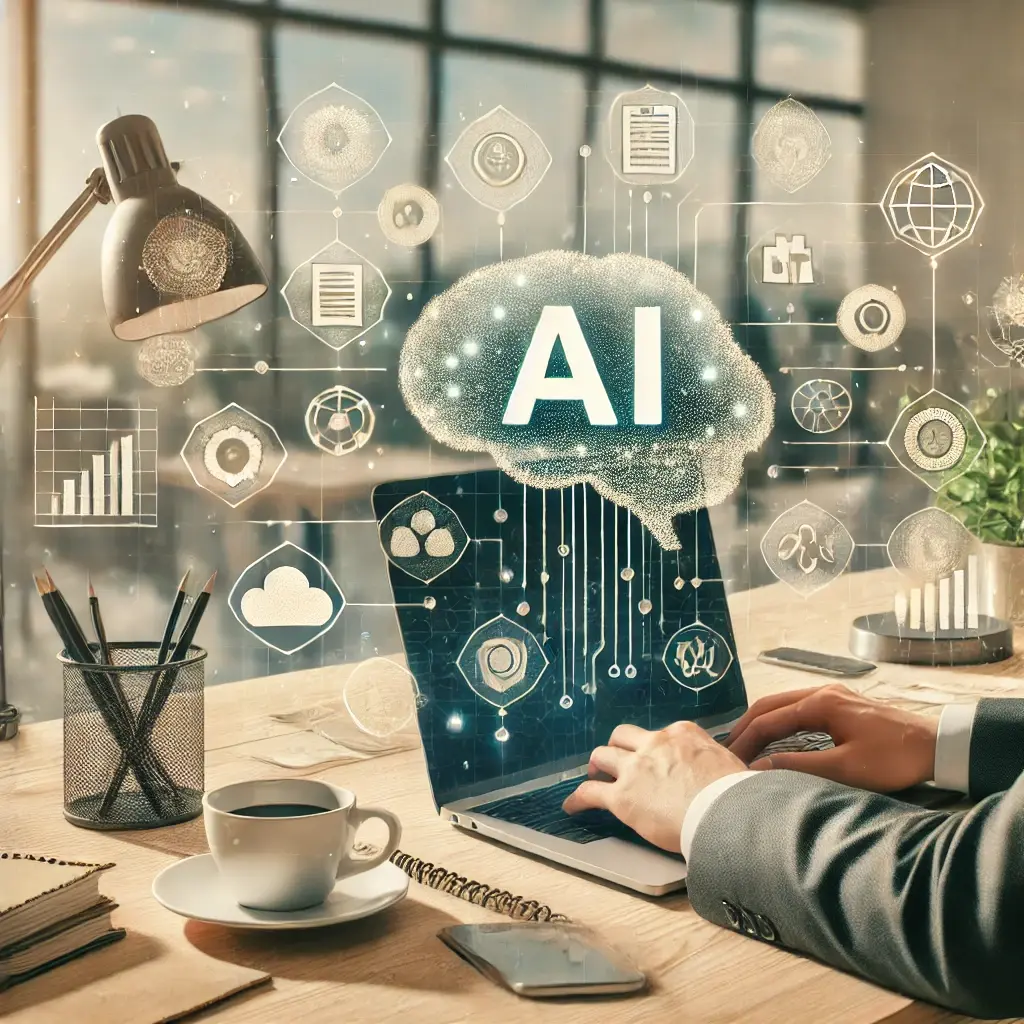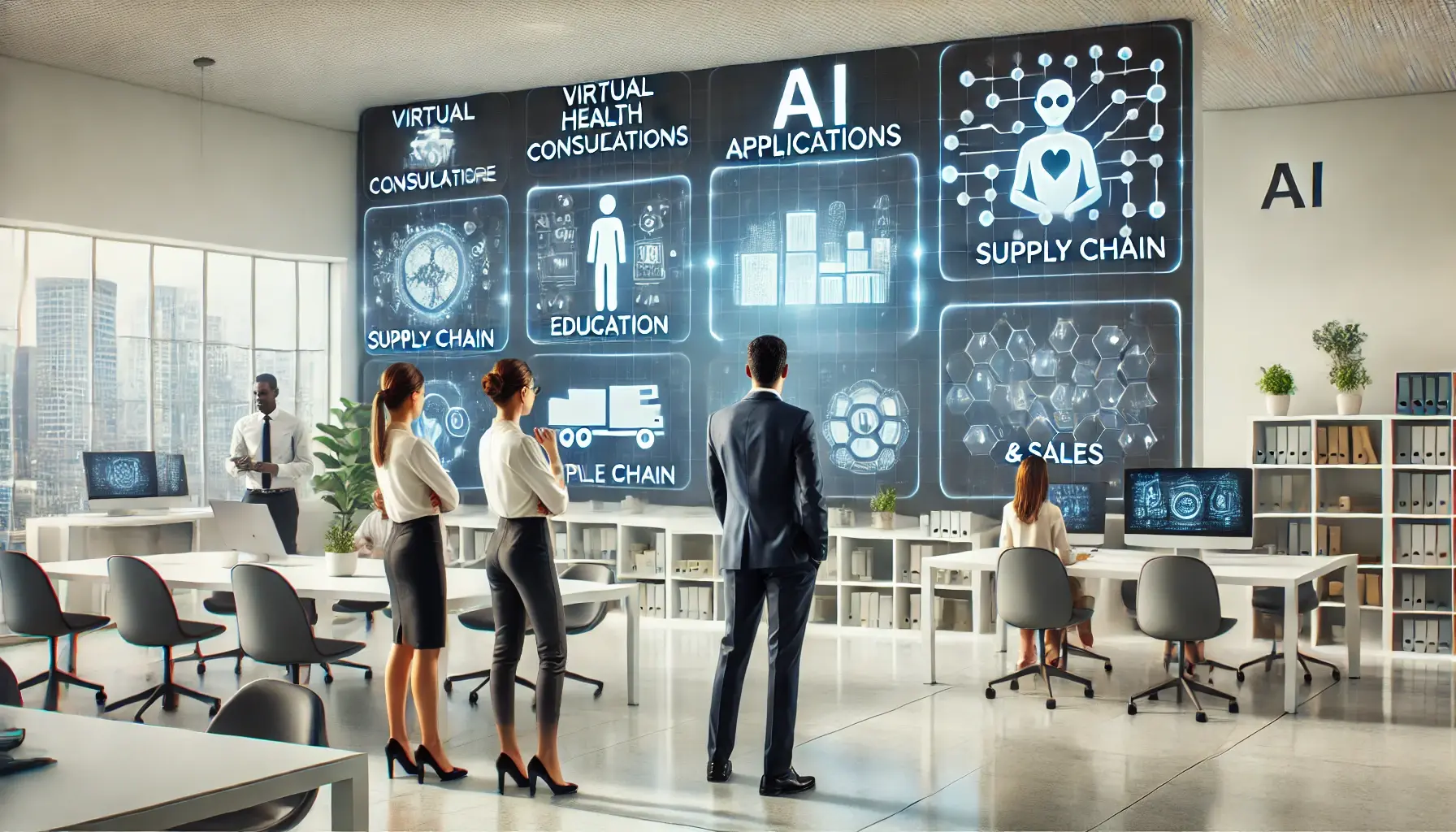AI Automation for Business Explained
Here are key insights and tips to leverage AI Automation for your business goals and drive your success.
Imagine having a team that never gets tired, never makes mistakes, and works 24/7. Picture this: customer support that's always available, an accounting department that processes invoices in the blink of an eye, and a production line that predicts maintenance needs before any breakdown. It is not science fiction; it is the reality of Artificial Intelligence (AI) in today's business world. In the past year, AI has made astonishing leaps, and the question is no longer whether it transforms businesses, but how you can harness its transformative power to propel your own company to success.
From the emergence of conversational AI like ChatGPT and Bard to the breathtaking capabilities of AI-generated images, such as those featuring a swagged Pope Francis, AI has undeniably stolen the show.
However, amid the buzzwords and hype, many business leaders grapple with the challenge of effectively harnessing AI beyond the gadgets and innovations. The true power of AI lies in its strategic implementation, aligning seamlessly with your company's goals and operations.
Business leaders often struggle to navigate the intricacies of AI, from selecting the right tools and technologies to building a skilled team capable of harnessing AI's potential. In this rapidly evolving landscape, it is essential for companies to not only keep pace with AI developments but also to discern how to make AI work strategically, ensuring it becomes a driving force for lasting success rather than a passing technological trend.
If you are wondering how to harness AI's power in your business, you're in the right place. Let's explore how AI can become a valuable asset to your business.
The Power of AI Automation
One of the most effective and straight-forward ways of integrating AI into your company is through automation. For business leaders looking to streamline their operations and enhance efficiency, task automation through AI can be a game-changer.
Task automation is undeniably one of the most immediate and practical applications of AI in business. Repetitive and time-consuming tasks can erode the productivity of your team, and AI can be a game-changer in this regard. In fact, according to a recent report by the McKinsey Global Institute (Ellingrud, Sanghvi, Singh, Madgavkar, Chui, White and Hasebe, 2023), AI's impact on task automation is set to be nothing short of transformative. By 2030, AI is projected to automate up to 30% of work hours across the entire US economy.
Moreover, studies suggest that, with access to Large Language Models (LLMs), approximately 15% of all worker tasks in the US could be completed significantly faster while maintaining the same level of quality. When incorporating software and tooling built on top of LLMs, this share increases to between 47 and 56% of all tasks (Eloundou, Manning, Mishkin and Rock, 2023).
Task Automation through AI
Task automation's immediate benefits extend beyond efficiency gains. By entrusting AI with repetitive responsibilities, you boost task execution speed and accuracy while reducing operational costs. Human errors, common in repetitive tasks, can lead to costly mistakes. Automation mitigates this risk and improves process quality.
Furthermore, your team is freed from mundane tasks, focusing on higher-value activities requiring creativity, critical thinking, and problem-solving. This reallocation of human resources can result in significant cost savings and enhanced employee job satisfaction.
Nervethelsess, it is vital to approach AI and automation with the right mindset: AI isn't about replacing jobs; it's about making tasks easier.
As Andrew NG, founder & CEO of DeepLearning. AI and a world-renowned AI leader, pointed out in a recent article: “Rather than thinking of AI as automating jobs — a common narrative in the popular press and in conversations about AI leading to job losses — it’s more useful to think about jobs as collections of tasks, and to analyze AI’s ability to augment or automate individual tasks.” (2023).
How to leverage AI Automation in Your Company
So, how can you harness AI for task automation in your company? Here's a strategic step-by-step approach to it:
- Identify Repetitive Processes: Start by systematically examining your workflow to pinpoint tasks that are routine, rule-based, and time-consuming. For instance, in a customer service department, this could involve recognizing common customer inquiries that follow a predictable pattern, such as account balance checks or password resets. In a finance department, it might involve identifying routine invoice processing tasks.
- Implement AI-Powered Tools and Solutions: Once you have identified these repetitive processes, the next step is to implement AI-powered tools and solutions tailored to your specific needs. In the context of customer service, chatbots are a prime example. These AI-driven virtual assistants can be programmed to handle routine customer queries 24/7, providing instant responses and freeing up human agents for more complex issues. Similarly, in finance, machine learning algorithms can be integrated into your systems to streamline the processing of invoices. These algorithms can automatically extract relevant information, cross-check data for accuracy, and initiate payments, significantly reducing manual effort and the risk of errors.
- Increase Efficiency and Reduce Costs: The benefits of automating repetitive tasks extend well beyond efficiency gains. By entrusting AI with these routine responsibilities, you not only increase the speed and accuracy of task execution but also reduce operational costs. Human errors, which are inevitable in repetitive tasks, can result in costly mistakes. Automation minimizes this risk, enhancing the overall quality of your processes. Moreover, employees are liberated from mundane tasks and can focus their efforts on higher-value activities that require creativity, critical thinking, and problem-solving. This reallocation of human resources can lead to significant cost savings and, perhaps more importantly, improve employee job satisfaction.
Business Value of AI Automation
AI-powered task and process automation can unlock substantial value for businesses. The PwC AI Business Survey (2022) found that 44% of business leaders see it as a primary avenue for business improvement with AI. Increased productivity through automation is the most significant benefit derived from AI.
Conclusion
In the dynamic business environment, the power of AI lies not just in its technological potential but in its strategic implementation. While AI has undoubtedly dazzled us with its advancements, the true magic happens when it seamlessly aligns with a company's objectives. Task automation, powered by AI, is a prime example of this synergy. It offers immediate and practical benefits, liberating your team from repetitive tasks and unleashing human creativity and problem-solving.
AI is here to augment capabilities and automate tasks, providing valuable resources for businesses. The statistics speak volumes—AI is poised to automate a significant portion of work hours across industries. The focus isn't on automating jobs but on tasks, enhancing efficiency, and reducing costs.
Incorporating AI tools into your organization is the key to unlocking these benefits. Identify repetitive processes, tailor AI solutions, and reap the rewards. Increased efficiency, reduced operational costs, and improved employee job satisfaction are just the beginning. AI-powered automation empowers your team to focus on higher-value activities, ultimately driving your business towards greater success.
Ready to Transform Your Business with AI?
At Crata AI, we specialize in tailoring AI solutions to your unique business needs. Whether you're looking to streamline your operations, enhance customer service, or gain a competitive edge, our AI expertise can make it happen.
Don't miss out on the AI revolution—take the next step towards a more efficient and innovative future with Crata AI.
Contact us now to schedule a personalized consultation and discover how AI can revolutionize your business, drive efficiency, and lead you to unparalleled success.
References
- Ellingrud, K., Sanghvi, S., Singh, D., Madgavkar, A., Chui, M., White, O., & Hasebe, Y. (2023). Generative AI and the Future of Work in America. McKinsey Global Institute. Retrieved from https://www.mckinsey.com/mgi/our-research/generative-ai-and-the-future-of-work-in-america.
- Eloundou, T., Manning, S., Mishkin, P., & Rock, D. (2023). GPTs are GPTs: An Early Look at the Labor Market Impact Potential of Large Language Models. arXiv:2303.10130 [econ.GN]. Retrieved from https://arxiv.org/abs/2303.10130.
- PwC. (2022). PwC 2022 AI Business Survey. Retrieved from https://www.pwc.com/us/en/tech-effect/ai-analytics/ai-business-survey.html
- NG, A. (2023). The Batch, issue 215. Retrieved from https://www.deeplearning.ai/the-batch/issue-215/.
 By
By




